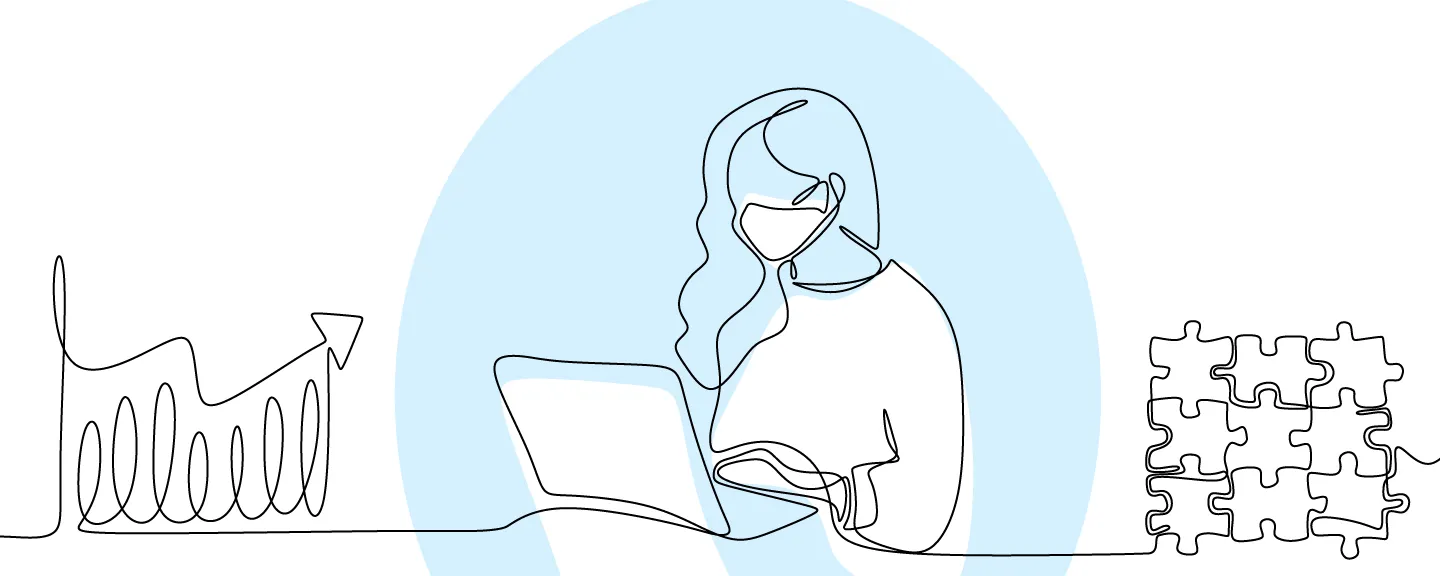- Home
- >
- APU Articles
- >
- News Article
How an APU Graduate’s Public Health Degree Prepared Her for the Pandemic
April 20, 2021 | Written By Ashley Eneriz

Zadekian returned home the following day and was surprised that TSA at Los Angeles International Airport (LAX) didn’t take the group’s temperatures or ask about their travel. This potential screening gap left Zadekian mulling over solutions: “How can we use public health research to further prepare international airports, such as LAX, to both prevent and quickly respond in the case of a pandemic?” she wondered.
“It is our job as rising public health professionals to constantly be educated, prepared, and ready to step into action,” Zadekian said.
COVID-19 Highlights the Need for Public Health Professionals
After studying public health during the COVID-19 pandemic, Zadekian knows how critical public health research is to creating guidelines and making policy decisions. Her training also helped her see how the public easily misinterprets health statistics. “Clear health communications from trusted public health leaders are more essential than ever,” she said.
These factors led Zadekian to enroll in an advanced biostatistics and epidemiology course taught by Sanggon Nam, PhD, MS. “The skills obtained in this course allowed me to quickly understand and interpret statistics released by the Centers for Disease Control and Prevention (CDC),” she said. Zadekian uses her newfound knowledge to help her family and friends understand data better. “This really showed me how much I enjoy being able to use my knowledge to educate and inform the public.”
Public Health Is an International Need
COVID-19 has underscored the necessity of public health professionals worldwide, and Zadekian saw firsthand how urbanization impacts public health. “After working in Panama’s remote indigenous communities, I realized that remote tropical communities face a higher risk of malnutrition and neglected tropical diseases,” she said.
She worked with various indigenous Ngäbe-Buglé communities there, where patients with life-threatening injuries couldn’t get proper treatment. The community had limited medical supplies, and patients couldn’t afford to travel to a different hospital. She also witnessed children playing in the muddy jungle terrain without shoes, which increased their risk of helminth worms, parasites that can cause diseases and even death in the developing world, according to the CDC.
Using a Public Health Degree to Serve the Greater Good
Even after the COVID-19 crisis is handled, many urgent public health issues will still be taking place around the world.
A public health professional can work in many fields. The U.S. Bureau of Labor Statistics projects healthcare occupations to grow 15 percent by 2029. Even more importantly, a career in public health allows individuals to care for and serve communities.
“At APU, our public health students collaborate across healthcare disciplines and actively work with their counterparts in nursing, physical therapy, social work, and more,” said Marissa Brash, DrPH, EdD, MPH, CPH, chair of the Department of Public Health in Azusa Pacific’s School of Nursing. “Students benefit from this direct involvement with various disciplines, because that is exactly how they will function when they are working in their field. Collaborating with different sectors of health care provides an opportunity to understand how they fit into the system and can be a vital and effective liaison in the medical community, offering data and evidence to inform medical practices.”
For example, Zadekian also served as an outreach specialist for Reach Out. She coordinated a youth mental health awareness program in high schools across the Inland Empire with the goal to create a culturally competent mental health workforce.
“In the future, I would like to be part of the next generation of health policy leaders,” Zadekian said. She is pursuing a career in health communications with the ultimate goal of becoming a public health advisor working closely with policymakers.
As Zadekian demonstrates, with an MPH, you can serve people in many places, from Panama’s jungles to your hometown’s high schools.
“Being an MPH student during the COVID-19 pandemic further confirmed my passion to pursue a career in health communications and health policy with an emphasis on international infectious diseases,” she said. “The public health field not only improves quality of life for others but also enables health and human security through evidence-based research.”
Interested in pursuing a public health degree at Azusa Pacific University? Discover the public health careers you could pursue with an MPH.